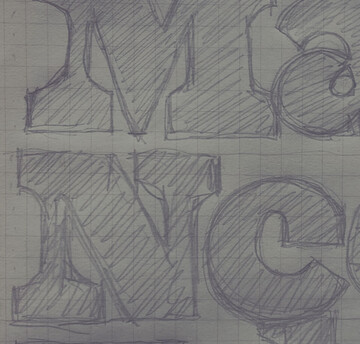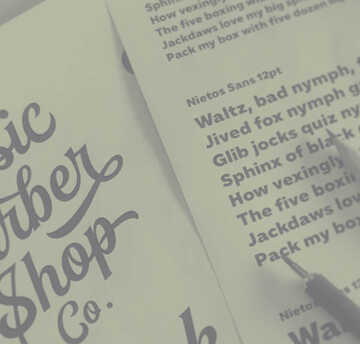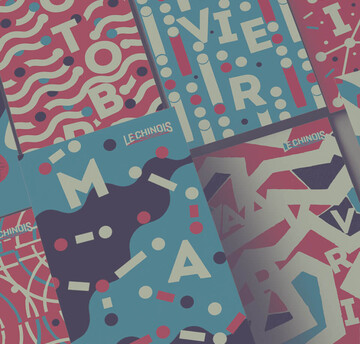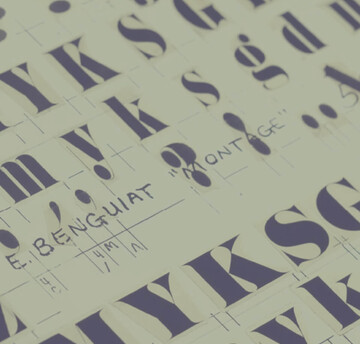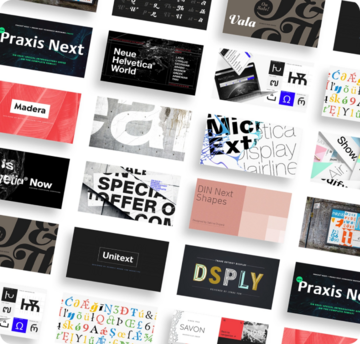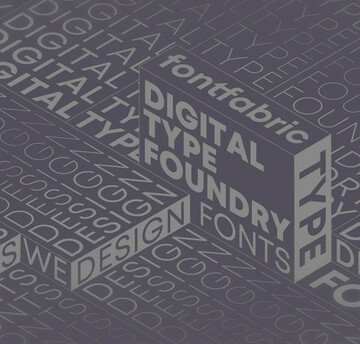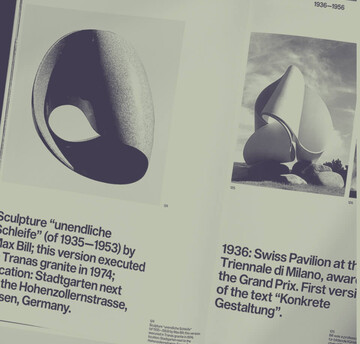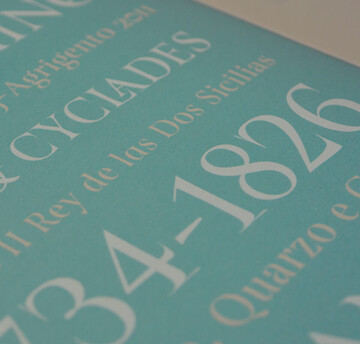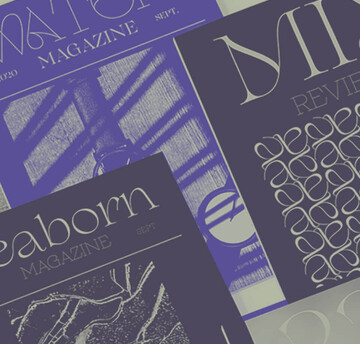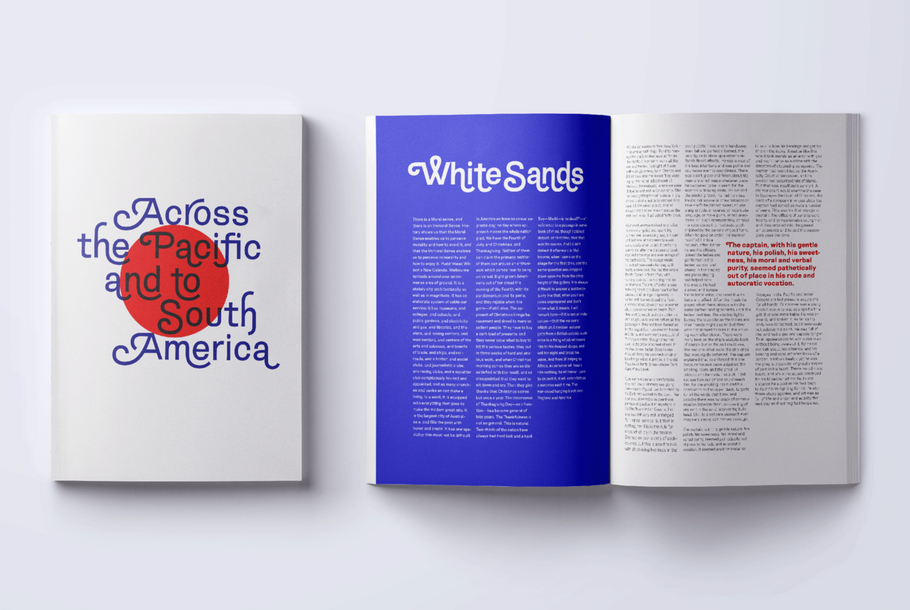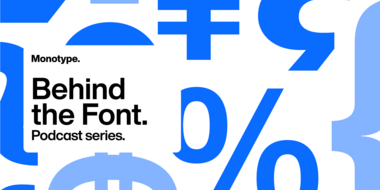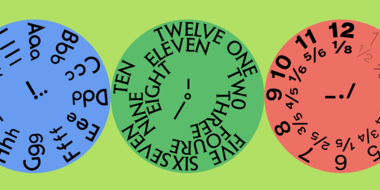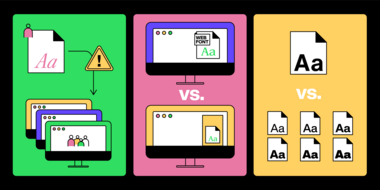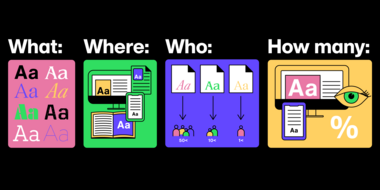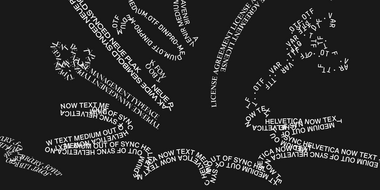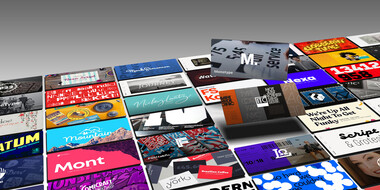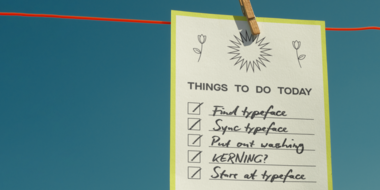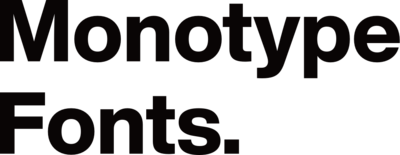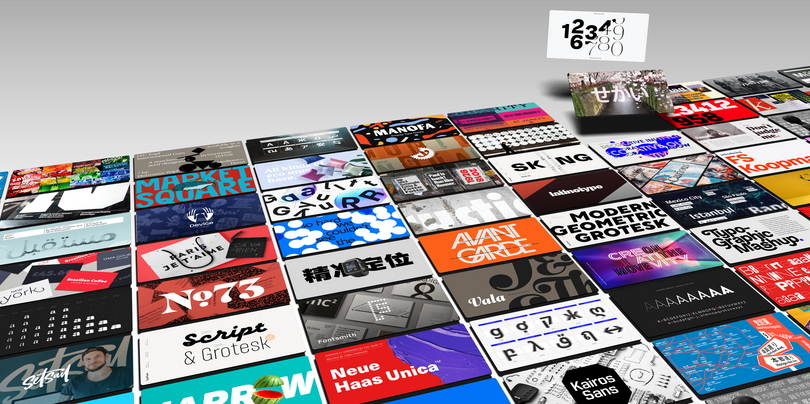Frequently Asked Questions.
Do I need separate font licenses for different uses?
Yes. Even if your brand only uses one typeface (let’s say, Futura Now), the font software must be licensed for the different environments where it will be used.
Monotype offers a few basic font license types, each pertaining to a different form of font usage:
- Desktop licenses allow you to install fonts on computers for use in print or static image formats.
- Webfont licenses allow you to embed fonts into websites.
- Digital ad licenses allow you to use fonts in emails and HTML5 digital ads.
- Embedded licenses let you distribute fonts as part of physical products like medical devices and cars, as well as in software programs.
- Application licenses allow you to embed fonts in phone/tablet apps and SaaS products.
- ePub licenses cover font usage in commercial publications.
- Server licenses allow non-licensed desktop users to use fonts on company platforms, such as variable or prepress-based print and digital proofs and editing. They include both commercial and non-commercial uses. Other common uses include automated marketing services (CMS), SaaS-based print-on-demand, and dynamic digital signage.
Can I use a desktop license on my website?
No. A typical desktop license allows you to install the font on your computer for use in design programs like InDesign. Web font licenses will enable you to embed that font in the code for a website. So, whereas you might use a desktop license to create a static image (like a .jpeg) you upload to your website, a web font license facilitates the implementation of the font in the actual code of your website.
Once I license a font, can I share it with as many people as I want?
Not exactly. Most EULAs limit the number of “seats” or “workstations” allowed, aka the number of times it can be shared. If you need to share a font widely (for example, if you have a huge creative team), you can include that in your initial license agreement. If your needs change, you can also purchase additional licenses to add seats or workstations. Consider purchasing Monotype’s company desktop license, which is designed for modern workflows and a more flexible desktop licensing approach.
Bonus: What is the difference between a typeface and a font?
Although the terms “font” and “typeface” are often used interchangeably, they do not, in fact, mean the same thing. “Typeface” refers to the design—the actual appearance of the letters, numerals, punctuation, and other symbols—while a font is the physical embodiment of the typeface, whether it’s a case of metal type or a computer file. More simply, a font is what you license and use, and a typeface is what you see.
A typeface is usually grouped together in a family containing individual fonts for a range of styles, including thin, light, regular italic, bold, condensed, and other variations of the primary design. Individuals and brands can license a single font, the whole family, or any selection of fonts from a typeface.
Quick note from the Monotype legal department: The information included here pertains to Monotype font licenses only. Other foundries may have unique requirements or restrictions in their contracts. Always read your licensing agreements closely.
What are server licenses?
Server licenses allow non-licensed desktop users to use font software on company platforms. Examples of non-licensed desktop users include your clients, dealerships, and third-party distributors. Examples of server-based software include prepress and variable print software, dynamic text generation (e.g., signage), automated marketing services (CMS/templates), and web-based print-on-demand platforms. The output of server environments can include non-commercial embedded documents like marketing materials as long as they cannot be edited. Commercial Embedded Documents (e.g., eBooks, magazines, etc.) require additional license coverage.
Here’s a quick example: If a brand licenses Futura Now for some print materials and then decides to launch an app using the same typeface, they’ll need to secure a mobile app license for Futura Now before deploying the app.
What kind of license do I need to use fonts in emails or HTML5 digital ads?
Emails and HTML5 digital ads fall under the umbrella of digital ad licenses. (Note that these are called “Digital Marketing Communications”). With a digital ad license, you can use a font’s software in HTML5 digital ads and email marketing up to your number of Licensed Impressions.
